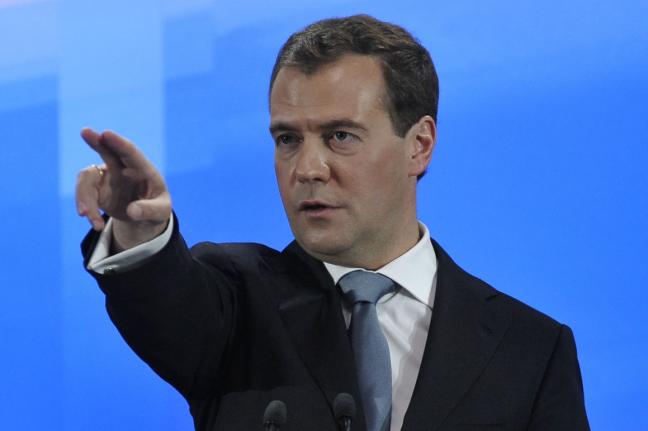
Once Again Moscow Tries to Intimidate Tokyo
Publication: Eurasia Daily Monitor Volume: 12 Issue: 144
By:

Despite the best efforts of both Moscow and Tokyo to sustain the momentum toward a full normalization of their relations and a genuine rapprochement (see EDM, February 24, 2014; June 10, 2014), once again Russia has tried to intimidate Japan. In June 2015, Russian Defense Minister Sergei Shoigu ordered a program of new military and civilian construction on the Kurile Islands, several of which are simultaneously claimed by Japan (see EDM, June 23). Now, new military drills are about to take place there. More recently, on July 23, Russia’s Prime Minister Dmitry Medvedev announced his intention to once again visit the Kuriles, despite Japanese requests that he cancel this visit. Medvedev’s announcement emphasized the special role the military plays in enabling civilian infrastructure and a continuous population presence on this island chain (TASS, July 24). Sakhalin region governor Oleg Kozhemayko’s statement that Japan was welcome to take part in Russia’s upcoming drills around the Kuriles, under the circumstances, can only be seen as a deliberate insult to Tokyo (RIA Novosti, July 25).
It has long been the case that Russia’s armed forces have been among the strongest opponents of rapprochement with Japan and compromises on the Kuriles. Yet, Vladimir Putin’s decision to engage once again in policies that gratuitously provoke Tokyo remains something of a mystery, especially in the light of his previous support for bilateral reconciliation.
Several possibilities come to the fore—all of which may be true to one degree or another. One explanation is related to the apparent abiding Russian belief that to be taken seriously by other countries, Russia must first intimidate them. Thus, fear becomes the basis of respect. Many times in the past, Moscow has utilized this tactic or displayed this world view in its relations with Tokyo. Indeed, the hundreds of overflights made by Russia over Japan in the last 18 months (which admittedly have decreased in frequency more recently) would indicate that this motive remains quite prominent (The Japan Times, October 24, 2014; July 16, 2015).
An alternative explanation for Putin’s willingness to undermine relations with Tokyo is, of course, the prevalence of Russian domestic actors that believe any concession to Japan would open the door to threats to Russia’s Far East. A nightmare scenario would particularly be a Japanese or US fleet sailing in through the Kurile Islands toward Russia’s Far East coast, from where it could strike at the Russian mainland. This view has long been touted by the Russian defense and security sector, particularly in the Navy. Yet, if such a threat from Japan truly existed, Russia’s new naval doctrine would have emphasized it (Kremlin.ru, July 26). Instead, judging by press reports, the new doctrine emphasizes the purported threat to Russia from the North Atlantic Treaty Organization (NATO) and concentrates on the country’s need to build up its Arctic, Baltic and Black Sea Fleets (RT, July 26).
Third, Russia’s willingness to spoil its relations with Japan is almost certainly driven, at least in part, by a desire to retaliate for Japanese Prime Minister Shinzō Abe’s recent visit to Kyiv (The Japan Times, June 6). Up to now, Moscow showed pragmatic restraint regarding Tokyo’s reluctant decision to eventually join Western sanctions related to Russia’s war against Ukraine (see EDM, October 3, 2014). But apparently the Japanese prime minister’s trip to Ukraine was a step too far.
Fourth, there is a distinct possibility that Beijing may have weighed in and pressed Moscow against pursuing further normalization with Tokyo. Japan’s new defense doctrine, which accuses the People’s Republic of China (PRC) of antagonism or even outright aggression in the South and East China Seas, obviously does not go over well in Beijing (Xinhua, July 21). Moreover, Beijing likely fully grasps that a key motive for the rapprochement between Tokyo and Moscow is a shared concern over China, and the PRC government may well have thrown its weight around to prevent any further progress along that line. And since Beijing would undoubtedly find allies inside Russia in support of this stance, China may have used such domestic Russian players to advance its own regional foreign policy.
If the PRC did, indeed, play such a role, it would be another example of how Moscow is increasingly forced to yield to Chinese dictates (see EDM, June 19). Thus, Moscow needs Tokyo far more than Tokyo needs it, especially given the rise of China and its apparent leverage over Russian politics and economics. While failure to bring about a genuine Russo-Japanese rapprochement injures Japan, in this case it does considerably more damage to Russia’s economic and political prospects in general and in Asia in particular. Ultimately, Japan does not need the Kurile Islands. But Moscow, under almost all circumstances, needs a non-Chinese partner in Asia, even if it cannot and will not admit that fact.




